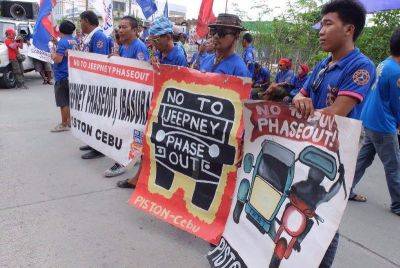Better conditions sought for Malabon waste workers leading clean energy initiative
MANILA, Philippines — In recent years, Barangay Dampalit in Malabon City has made strides towards producing renewable energy (RE) from their solid waste.
It is home to a biodigester, which transforms organic waste such as food scraps and animal waste into biogas through the natural process of decomposition in an oxygen-free environment. This biogas is used by workers of the barangay’s Materials Recovery Facility (MRF) for cooking, and is also available for communal use–free of charge.
The barangay also owns a dual drum decomposer, used to churn down organic wastes to produce soil. This soil–combined with “biol,” a nitrogen-rich soil enhancer–is then sold for P20 per kilo.
Because of these practices, students and clean energy organizations regularly visit Barangay Dampalit’s MRF, which houses the biodigester and dual drum decomposer.
Dampalit’s initiatives are part of the Philippines’ transition to low-carbon energy, mandated since the implementation of Renewable Energy Act 15 years ago. The government targets RE to comprise 35% of the power generation mix by 2030 and 50% by 2040.
Yet behind these milestones are the unseen waste workers who, despite low pay and safety hazards, help the country inch towards its RE goals.
Blanca Esplana, 56, is among the 20 waste collectors in Barangay Dampalit. Daily, she collects the garbage of 13,000 residents—from PET (polyethylene terephthalate) bottles, food scraps, cardboards, and pet wastes. They enforce the barangay’s “No Segregation, No Collection” policy, which has been in place since 2018.
By 5 a.m., Esplana and her 71-year-old partner Flaviano Romero, also a barangay waste worker, ride a tiny pedicab to collect household wastes. Collecting and segregating waste in the MRF takes about four hours. After this, they clean and maintain the MRF for the rest of the day.
All this work is worth P100 daily, Esplana said.
Dampalit’s waste workers thus receive a monthly salary of P3,000 (around USD 52), which they receive in two tranches every 15th and 30th day of the month, according to 54-year-old Catherine Gutierrez, monitoring officer of the barangay MRF.
Budgeting this meager salary for her daily expenses is a challenge







